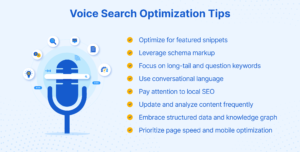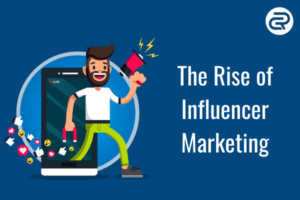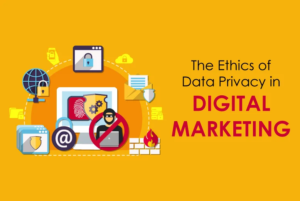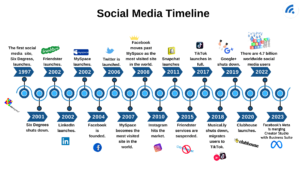Introduction:
In the fast-paced world of digital marketing, As we navigate through 2024, several emerging trends and innovations are set to reshape the landscape of digital marketing. From advancements in artificial intelligence to the growing importance of data privacy, this blog will explore the key developments that marketers
- Artificial Intelligence and Machine Learning:
Artificial Intelligence (AI) and Machine Learning (ML) continue to be at the forefront of digital marketing innovation. These technologies are transforminghow businesses approach customer interactions, data analysis, and campaign optimization.

Personalized Customer Experiences: AI-driven algorithms analyze vast amounts of data to deliver highly personalized content and recommendations. For instance, AI can tailor email marketing campaigns based on user behavior, preferences, and purchase history, resulting in higher engagement rates.
Chatbots and Virtual Assistants: AI-powered chatbots are becoming more sophisticated, providing instant customer support and guiding users through the sales funnel. enhancing customer satisfaction and freeing up human resources for more complex queries.
Predictive Analytics: Machine learning models can predict future trends and customer behaviors, enabling marketers to make data-driven decisions. Predictive analytics helps in forecasting sales, identifying potential churn, and optimizing marketing strategies for better ROI.
- Voice Search Optimization:
With the increasing popularity of smart speakers and voice-activated devices, voice search is becoming a significant aspect of digital marketing. According to recent studies, over 55% of households are expected to own a smart speaker by 2024.

Voice-Activated Content: Marketers need to optimize their content for voice search by focusing on natural language and conversational keywords. This involves understanding the nuances of how people speak versus how they type, and creating content that answers specific questions directly.
Local SEO: Voice search is often used for local queries, such as finding nearby businesses or services. Ensuring your business is optimized for local SEO, with accurate and up-to-date information on Google My Business, can help capture this growing segment.
- Video Marketing Dominance:
Video continues to dominate the digital landscape, with platforms like YouTube, TikTok, and Instagram leading the charge. Video marketing is not just a trend; it’s a crucial component of any comprehensive digital marketing strategy.

Short-Form Videos: The rise of TikTok and Instagram Reels has popularized short-form video content. These bite-sized videos are highly engaging and perfect for capturing the attention of a distracted audience. Brands can leverage this format for product demos, behind-the-scenes looks, and user-generated content.
Live Streaming: Live video has gained significant traction, especially during the pandemic. Live streaming allows brands to connect with their audience in real-time, fostering a sense of community and authenticity. Platforms like Facebook Live, Instagram Live, and YouTube Live are ideal for product launches, Q&A sessions, and virtual events.
Interactive Videos: Interactive video content, such as shoppable videos, where users can click on products to purchase directly from the video, is also gaining popularity
- The Rise of Influencer Marketing:
Influencer marketing continues to evolve, with brands leveraging the reach and authenticity of influencers to connect with their target audience. However, the approach is shifting towards more genuine and long-term partnerships.

Micro-Influencers: While mega-influencers and celebrities still hold value, micro-influencers (those with smaller, highly engaged followings) are becoming more attractive to brands.
Authenticity and Transparency: Consumers are becoming more skeptical of influencer endorsements. Brands and influencers need to focus on authenticity and transparency, clearly disclosing partnerships and promoting products that genuinely align with the influencer’s values and audience.
Performance-Based Contracts: To ensure better ROI, brands are increasingly adopting performance-based contracts with influencers. This means influencers are compensated based on the success of the campaign,
- Data Privacy and Ethical Marketing:
With the implementation of stricter data privacy regulations, such as GDPR and CCPA, and growing consumer concerns about data security, ethical marketing practices are becoming paramount.

Transparent Data Practices: Brands must be transparent about how they collect, use, and protect consumer data. This involves updating privacy policies, obtaining explicit consent, and providing easy-to-understand information about data usage.
Ethical Data Usage: Ethical marketing extends beyond compliance. It’s about respecting consumer privacy and using data responsibly. This includes avoiding intrusive data collection practices and ensuring that data-driven marketing efforts do not cross ethical boundaries.
First-Party Data: With third-party cookies becoming obsolete, marketers are turning to first-party data (data collected directly from customers). Building a robust first-party data strategy involves leveraging CRM systems,
- The Growing Importance of Sustainability:
Consumers are increasingly favoring brands that demonstrate a commitment to environmental and social responsibility.

Eco-Friendly Initiatives: Brands need to incorporate sustainability into their core values and marketing strategies. This can involve reducing carbon footprints, using eco-friendly packaging, and promoting sustainable products and practices.
Social Responsibility: Beyond environmental efforts, brands are expected to contribute positively to society. This includes supporting social causes, promoting diversity and inclusion, and ensuring ethical supply chains.
Transparent Communication: Marketers must communicate their sustainability efforts transparently. Greenwashing—making misleading claims about the environmental benefits of a product or service—can severely damage a brand’s reputation.
- The Evolution of Social Media Platforms:
Social media continues to evolve, with platforms constantly updating their features and algorithms. Staying updated with these changes is essential for effective social media marketing.

Algorithm Changes: Social media algorithms are becoming more sophisticated, prioritizing content that fosters genuine engagement. Marketers need to create high-quality, engaging content that encourages interaction and shares.
New Platforms and Features: Emerging platforms like Clubhouse (audio-based social networking) and the continued growth of TikTok offer new opportunities for reaching audiences.
Community Building: Social media is increasingly about building communities rather than just broadcasting messages. Brands should focus on creating and nurturing communities around shared interests and values, fostering a sense of belonging and loyalty among their followers.
Conclusion:
The digital marketing landscape is constantly evolving, driven by technological advancements and changing consumer expectations. As we move through 2024, marketers must stay agile and adaptable, embracing new trends and innovations to stay ahead of the competition. From leveraging AI and ML to optimizing for voice search, embracing video marketing, and prioritizing ethical data practices, the future of digital marketing is both exciting and challenging.

